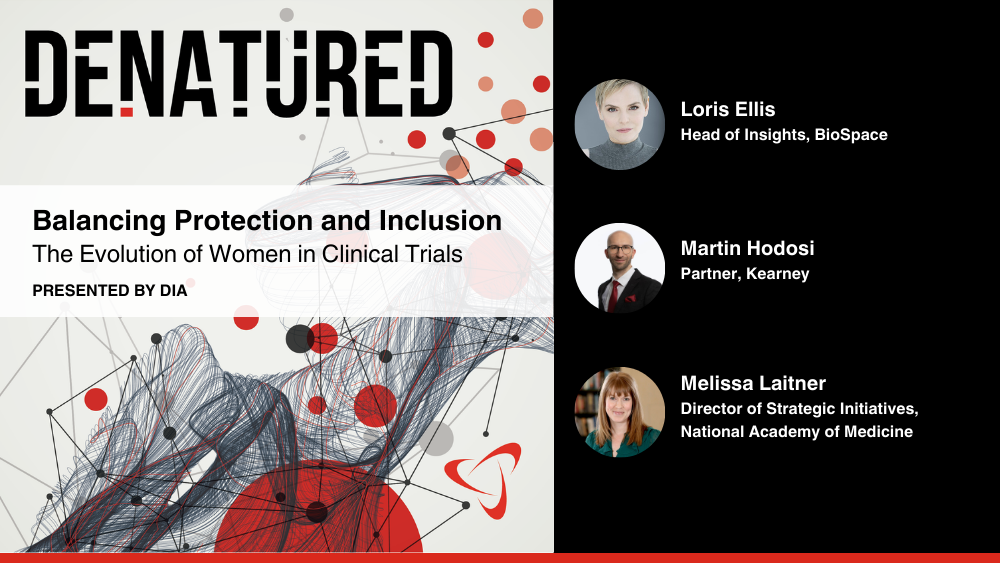In Eli Lilly and Company’s pivotal, Phase 3 LUCENT-2 study, patients with ulcerative colitis who responded to mirikizumab at 12 weeks achieved and maintained statistically superior and clinically meaningful improvements at one year compared to placebo across the primary endpoint of clinical remission and all key secondary endpoints, including bowel urgency severity, using a novel, patient-reported outcome measure.
Nearly all mirikizumab-treated patients who achieved clinical remission at one year were not taking steroids
INDIANAPOLIS, May 24, 2022 /PRNewswire/ -- In Eli Lilly and Company‘s (NYSE:LLY) pivotal, Phase 3 LUCENT-2 study, patients with ulcerative colitis (UC) who responded to mirikizumab at 12 weeks achieved and maintained statistically superior and clinically meaningful improvements at one year compared to placebo across the primary endpoint of clinical remission and all key secondary endpoints, including bowel urgency severity, using a novel, patient-reported outcome measure. Late-breaking results are being presented today at Digestive Disease Week (DDW). If approved, mirikizumab would become the first and only anti-IL23p19 treatment for people with UC.
“Ulcerative colitis can significantly impact a patient’s quality of life, including fecal incontinence due to bowel movement urgency that may even result in individuals wearing diapers. Patients often spend years trying different treatments, including steroids and TNF inhibitors, hoping to achieve remission, reduce inflammation and get relief from painful, disruptive and sometimes embarrassing symptoms,” said Marla C. Dubinsky, M.D., Professor of Pediatrics and Medicine, Co-director of the Susan and Leonard Feinstein IBD Clinical Center, Chief of the Division of Pediatric Gastroenterology and Nutrition at the Icahn School of Medicine at Mount Sinai. “I’m encouraged by what the LUCENT-2 findings could mean for patients with UC, as one-half of mirikizumab patients achieved clinical remission and 98 percent of those patients were also not taking steroids. Additionally, 40 percent of mirikizumab patients achieved resolution or near resolution of their distressing symptom of bowel urgency.”
Mirikizumab was superior to placebo on clinical, symptomatic, endoscopic and histologic endpoints regardless of previous failure to TNF inhibitors, tofacitinib or other biologics. Among patients who had responded to 12-week induction treatment with mirikizumab, one-half of patients receiving mirikizumab maintenance treatment (49.9%, n=182/365) achieved clinical remission at one year compared to one-fourth of patients on placebo (25.1%, n=45/179, p<0.001). Nearly two-thirds of patients receiving mirikizumab who achieved clinical remission at 12 weeks maintained clinical remission at one year (63.6%, n=91/143) compared to one-third of patients on placebo (36.9%, n=24/65, p<0.001). Nearly all patients receiving mirikizumab who achieved clinical remission at one year were not taking corticosteroids for at least three months prior to the end of maintenance treatment (97.8%, n=178/182).
A patient-centric, 11-point scale developed by Lilly was used to assess changes in bowel urgency severity. Among patients who achieved clinical response in the 12-week induction study and who had a baseline urgency severity of 3 or greater, more than two in five patients on mirikizumab (42.9%, n=144/336) achieved resolution or near resolution of bowel urgency severity at one year compared to one in four on placebo (25%, n=43/172, p<0.001). Among patients who achieved clinical response in the 12-week induction study, patients receiving mirikizumab had a statistically significant average reduction in bowel urgency severity of 3.80 (3.53 to 4.07) at one year, compared to 2.74 (2.35 to 3.14) points for patients on placebo (p<0.001).
Patients receiving mirikizumab in the LUCENT-2 study reported a lower frequency of serious adverse events compared to placebo (mirikizumab: 3.3%, n=13/389; placebo: 7.8%, n=15/192) and were less likely to discontinue the study due to adverse events (mirikizumab: 1.5%, n=6/389; placebo: 8.3%, n=16/192). The overall safety profile was consistent with previous mirikizumab studies in UC and consistent with that of other anti-IL23p19 antibodies in other therapeutic areas.
“We’re thrilled to share patients with UC receiving mirikizumab achieved long-term clinical remission, improvement in hard-to-treat symptoms like bowel urgency, and remission of acute inflammation in the colon,” said Lotus Mallbris, M.D., Ph.D., vice president of global immunology development and medical affairs at Lilly. “These results are particularly meaningful for patients whose TNF inhibitors, tofacitinib or other biologic therapies have failed them. Lilly leads the way in studying patient-centric outcomes like bowel urgency. We look forward to regulatory decisions next year.”
In the first quarter of 2022, Lilly submitted a Biologics License Application (BLA) to the U.S. Food and Drug Administration (FDA) and a Marketing Authorization Application (MAA) in the European Union for approval of mirikizumab in UC. Regulatory decisions in the U.S., E.U. and other countries around the world are expected in 2023.
To learn more about inflammatory bowel disease, click HERE.
About Mirikizumab
Mirikizumab is a humanized IgG4 monoclonal antibody that binds to the p19 subunit of interleukin 23. Mirikizumab is being studied for the treatment of immune-mediated diseases, including ulcerative colitis and Crohn’s disease.
About The LUCENT-2 Study
LUCENT-2 (NCT03524092) is a multicenter, randomized, double-blind, placebo-controlled, Phase 3 maintenance study in patients with moderately-to-severely active ulcerative colitis who have previously failed conventional and/or biologic therapies and/or JAK inhibitors and required additional treatment to manage their disease, and who have also completed the 12-week induction study (LUCENT-1). For LUCENT-2, the primary analysis was based on patients who had responded to mirikizumab induction treatment in LUCENT-1 and were re-randomized to receive mirikizumab subcutaneously or placebo for an additional 40 weeks.
Patients who responded to mirikizumab in the 12-week induction study (LUCENT-1) and randomized into LUCENT-2 were on average 42.7 years old and had lived with UC for approximately 6.8 years since first experiencing symptoms at an average age of 36.1 years. Approximately 58.5% (n=318/544) of patients were male. Three out of five patients (62.7%, n=341/544) had severe intestinal mucosal inflammation, as measured by a Mayo endoscopic subscore of 3. 35.3% (n=192/544) had previously failed one or more biologics or tofacitinib, and 37.3% (n=203/544) had baseline corticosteroid use.
Clinical remission, the primary endpoint of the LUCENT-2 clinical trial, is achieved when inflammation of the colon is controlled or resolved, leading to normalization or near-normalization of symptoms such as stool frequency and bleeding, and is defined by a stool frequency (SF) score = 0, or 1 with a ≥1-point decrease from baseline, a rectal bleeding (RB) score = 0, and endoscopy score (ES) = 0 or 1, excluding friability, which is the propensity for tissue that covers the inside of the colon (also known as colonic mucosa) to be damaged or bleed because of contact with an endoscope or biopsy instrument.
Clinical response is measured by the decrease in the modified Mayo score of ≥2 points and ≥30% decrease from baseline (BL) and decrease of ≥1 point in the RB subscore from baseline or a RB score of 0 or 1.
Rather than using a binary scale to measure the presence or absence of bowel urgency, Lilly developed the bowel urgency numeric rating scale (NRS), a patient-centric 11-point scale (0 – 10) to assess change in bowel urgency severity from baseline in order to better understand UC patients’ experiences living with bowel urgency. Using this measure, patients receiving mirikizumab achieved clinically meaningful reduction in bowel urgency severity at one year compared to placebo.
About the LUCENT Clinical Trial Program
The LUCENT Phase 3 clinical development program for mirikizumab began in 2018 and includes LUCENT-1, LUCENT-2 and LUCENT-3. LUCENT-2 is a multicenter, randomized, double-blind, placebo-controlled maintenance study of mirikizumab in patients who have completed the 12-week induction study (LUCENT-1). Patients in LUCENT-1 who achieved clinical response with mirikizumab induction therapy were re-randomized to receive mirikizumab or placebo subcutaneously for an additional 40 weeks in the LUCENT-2 study. LUCENT-3 (NCT03519945) is an open label extension study for eligible patients who have participated in mirikizumab UC trials. Additional data from the Phase 3 LUCENT program, the first Phase 3 study of an anti-IL23p19 antibody in UC, will be disclosed at upcoming congresses and in publications in 2022.
About Lilly
Lilly unites caring with discovery to create medicines that make life better for people around the world. We’ve been pioneering life-changing discoveries for nearly 150 years, and today our medicines help more than 47 million people across the globe. Harnessing the power of biotechnology, chemistry and genetic medicine, our scientists are urgently advancing new discoveries to solve some of the world’s most significant health challenges, redefining diabetes care, treating obesity and curtailing its most devastating long-term effects, advancing the fight against Alzheimer’s disease, providing solutions to some of the most debilitating immune system disorders, and transforming the most difficult-to-treat cancers into manageable diseases. With each step toward a healthier world, we’re motivated by one thing: making life better for millions more people. That includes delivering innovative clinical trials that reflect the diversity of our world and working to ensure our medicines are accessible and affordable. To learn more, visit Lilly.com and Lilly.com/newsroom or follow us on Facebook, Instagram, Twitter and LinkedIn.
* Disclosure: Dr. Dubinsky has provided paid consulting and advisory services to Eli Lilly and Company and participates on the steering committee for the mirikizumab program.
P-LLY
Lilly Forward-Looking Statement
This press release contains forward-looking statements (as that term is defined in the Private Securities Litigation Reform Act of 1995) about mirikizumab as a potential treatment for people with ulcerative colitis and other diseases and the timeline for future readouts, presentations, regulatory action and other milestones relating to mirikizumab and its clinical trials, and reflects Lilly’s current beliefs and expectations. However, as with any pharmaceutical product, there are substantial risks and uncertainties in the process of drug research, development, and commercialization. Among other things, there is no guarantee that planned or ongoing studies will be completed as planned, that future study results will be consistent with study results to date, that mirikizumab will prove to be a safe and effective treatment for ulcerative colitis and other diseases, that mirikizumab will receive regulatory approval, or that Lilly will execute its strategy as expected. For further discussion of these and other risks and uncertainties that could cause actual results to differ from Lilly’s expectations, see Lilly’s Form 10-K and Form 10-Q filings with the United States Securities and Exchange Commission. Except as required by law, Lilly undertakes no duty to update forward-looking statements to reflect events after the date of this release.
| Refer to: | Marlo Scott; scott_marlo@lilly.com; +1-317-407-8879 (Lilly media) |
| Kevin Hern; hern_kevin_r@lilly.com; +1-317-277-1838 (Lilly investors) |
![]() View original content to download multimedia:https://www.prnewswire.com/news-releases/fifty-percent-of-patients-with-ulcerative-colitis-treated-with-mirikizumab-achieved-clinical-remission-at-one-year-in-lillys-pivotal-phase-3-study-301552268.html
View original content to download multimedia:https://www.prnewswire.com/news-releases/fifty-percent-of-patients-with-ulcerative-colitis-treated-with-mirikizumab-achieved-clinical-remission-at-one-year-in-lillys-pivotal-phase-3-study-301552268.html
SOURCE Eli Lilly and Company
Company Codes: NYSE:LLY





